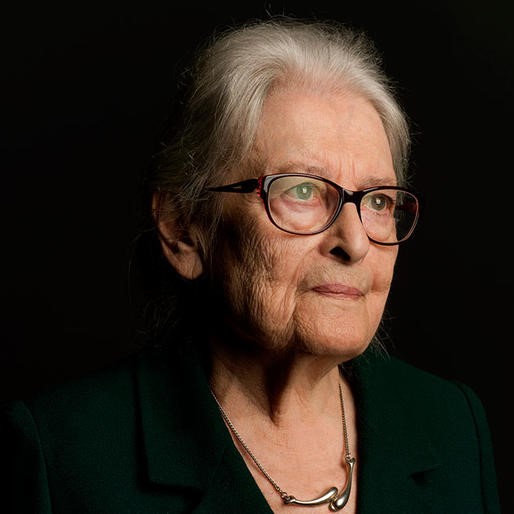Biography
Ioanna Kuçuradi, an esteemed philosopher, professor, academic, and author, was born in Istanbul on October 4, 1936. She completed her primary education at Istanbul Central Greek Middle School and her secondary education at Zapyon Greek Girls High School. In 1954, she entered the Philosophy Department of Istanbul University, graduating in 1959. The same year, she began her professional career as a research assistant in the same department, though she would leave the position a year later. In 1965, she completed her doctorate with her work titled “The Human Problem in Schopenhauer and Nietzsche.”
Between 1965 and 1968, Kuçuradi taught Philosophy and Latin courses at the Faculty of Arts of Atatürk University. In 1968, she transferred to the Education Department of the Faculty of Social and Administrative Sciences at Hacettepe University. Even while she was a doctoral research assistant, Kuçuradi established the philosophy department at Hacettepe University. She later contributed to the foundation of the Turkish Philosophy Society and the Center for Human Rights and Philosophy Research and Practice.
In 1970, she became an associate professor with her thesis on “The Problem of Value in Human Philosophy,” and in 1978, she became a professor with her work titled “Aristotle’s Ousia and the Concept of Substance.” She served as the chair of the Philosophy Department at Hacettepe University for many years since its inception, distinguishing herself as a philosopher leading an approach based on “value philosophy.”
From the mid-1970s, and especially in the 1980s, Kuçuradi undertook significant initiatives to demonstrate the practical application of philosophy. She was instrumental in the founding of the “Philosophy Society Association,” established in Ankara at the beginning of 1974, inspired by the need for a professional organization to represent Turkey in World Philosophy Congresses. She was the general secretary of the Turkish Philosophy Society until 1980, and upon the death of Prof. Nusret Hızır that year, she assumed the presidency.
Kuçuradi’s interest in “value” and “values” began with her professor Mengüşoğlu’s lectures on Nietzsche. In her work titled “Max Scheler and Nietzsche’s Tragic,” she attempts to define the “essence” of the tragic as a “human phenomenon,” a “phenomenon of life,” emphasizing that it is “always related to values or value comparisons” and that the tragic cannot emerge in a mechanical world.
One of the most important stages in Kuçuradi’s philosophical development, from philosophical anthropology to ethics, is her associate professorship thesis, “Human and His Values.” The main problem here is not to investigate the human problem as a phenomenon as in previous studies, but to reveal the value problem as a phenomenon. Thus, she aimed to clarify an important problem on the path to philosophical ethics.
Kuçuradi has been awarded numerous international awards, including the Goethe Medal. She led the organization of the 21st World Philosophy Congress in Turkey in 2003. For her significant contribution to the successful execution of the 21st World Philosophy Congress and her scientific work in this field, UNESCO announced that Ioanna Kuçuradi was deemed worthy of the 2003 Philosophy Award. Prof. Dr. Kuçuradi is a member of many national and international professional organizations.
In conclusion, Ioanna Kuçuradi is not only an acclaimed philosopher and academic but also a pioneer in her field. Her contributions to philosophy, particularly her focus on the issue of value and ethics, have had a significant impact on philosophical studies worldwide. Her dedication to making philosophy practical and accessible, demonstrated through her leadership roles in various professional organizations and her efforts in organizing international congresses, have been recognized internationally. Her life and work indeed present a grand and inspiring narrative in the annals of philosophy
.

